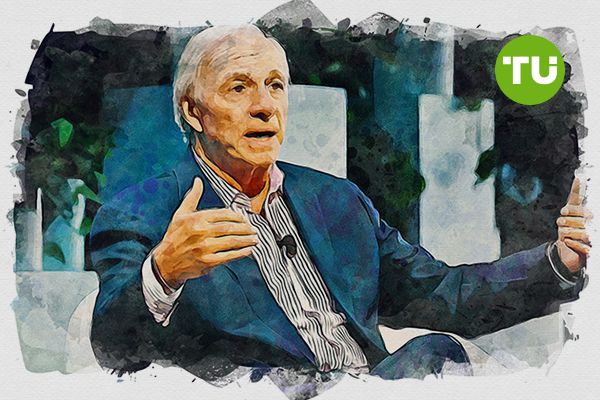Ray Dalio crypto principles: How legendary investor came to Bitcoin
 How Ray Dalio's investment strategy has evolved
How Ray Dalio's investment strategy has evolved
Ray Dalio is a prominent figure in the world of finance. Over the course of five decades in the investment sphere, he has conducted extensive research and identified timeless, universal cause-and-effect relationships that played a crucial role in the success of his hedge fund, Bridgewater. For many years, he preferred to invest in government bonds, gold, commodities, and major market indexes — but now, his attention is focused on Bitcoin.
What Ray Dalio is known for
Ray Dalio is an American investor, billionaire, and one of the most influential financial thinkers of our time. He is the founder of Bridgewater Associates, which began in 1975 as a small investment advisory firm with just one employee — Dalio himself. Over time, Bridgewater grew into one of the largest hedge funds in the world, managing hundreds of billions of dollars in assets and serving institutional clients globally.
Dalio became renowned for his unique approach to risk management and macroeconomic analysis. He developed the concept of "economic machines" — recurring cycles of growth, decline, debt, and inflation that underlie all market processes. His analytical model helped Bridgewater weather crises, including the 2008 global financial crash, and anticipate turning points in the global economy.
In addition to his investment activities, Dalio is also known as the author of the bestselling book Principles, in which he shares the life and management philosophies that underpin his success. The book has had a major impact on entrepreneurs, investors, and executives around the world and regularly tops business literature charts. Dalio is currently working on a new project tentatively titled How Countries Succeed and Fail.
Loading...
Where Ray Dalio invests
Ray Dalio has always built his investment strategies on deep macroeconomic research. He favored diversified portfolios capable of withstanding inflation, deflation, economic expansion, and contraction. Among his key investments were government bonds from developed countries (especially the U.S.), commodities, and gold — the latter of which he considered a critical tool for preserving capital during periods of global instability and currency devaluation.
One of Dalio’s most famous investment frameworks is the “All Weather Portfolio” — a balanced strategy designed to provide stable returns regardless of market conditions. This approach became a cornerstone of Bridgewater’s philosophy and a benchmark for institutional investors worldwide. Dalio also made extensive use of futures, currency instruments, and ETFs, preferring to bet not on individual companies but on global economic trends and long-term cycles.
Loading...
Dalio has always had a strong grasp of markets and spent much of his career focused solely on traditional assets. But everything changed with the emergence of Bitcoin, in which he saw significant long-term potential.
When Ray Dalio became interested in Bitcoin
Ray Dalio began commenting publicly on Bitcoin in the late 2010s, though his initial stance toward the leading digital asset was cautious, even skeptical. He expressed doubts about Bitcoin’s ability to function as money, citing high volatility and vulnerability to government regulation.
However, as interest in cryptocurrencies grew and confidence in fiat currencies weakened, Dalio gradually softened his position and started looking at Bitcoin as a potential store of value.
Loading...
By 2020, Dalio openly referred to Bitcoin as a “worthy asset” and acknowledged its potential as a digital alternative to gold. The Bridgewater founder noted that in an environment of global debt crises, rising inflation, and the decreasing effectiveness of traditional monetary policy, Bitcoin could serve as a form of “insurance” against currency debasement. Eventually, he admitted to personally owning Bitcoin, and his firm Bridgewater began exploring opportunities to invest in crypto assets.
In recent years, Dalio has gone further — actively encouraging investment in Bitcoin and describing it as “sound money.” He has also advised avoiding debt-based assets, citing the growing problems associated with global indebtedness.
A global financial signal
Ray Dalio’s interest in Bitcoin isn’t just a shift in his personal investment philosophy — it reflects a broader transformation taking place in global finance. An investor who spent five decades studying debt cycles and the vulnerabilities of traditional economic systems now sees digital assets as a tool for protecting capital against inflation, currency devaluation, and systemic instability.
Dalio’s decision to recognize Bitcoin as a digital alternative to gold is rooted in fundamental analysis and deep experience. That makes his position especially meaningful in the eyes of institutional investors, for whom he has long been a point of reference. When a legendary capital manager with a reputation for pragmatic strategy begins treating Bitcoin as “sound money,” it’s more than just an opinion — it’s a signal to the entire financial world.













































































































































